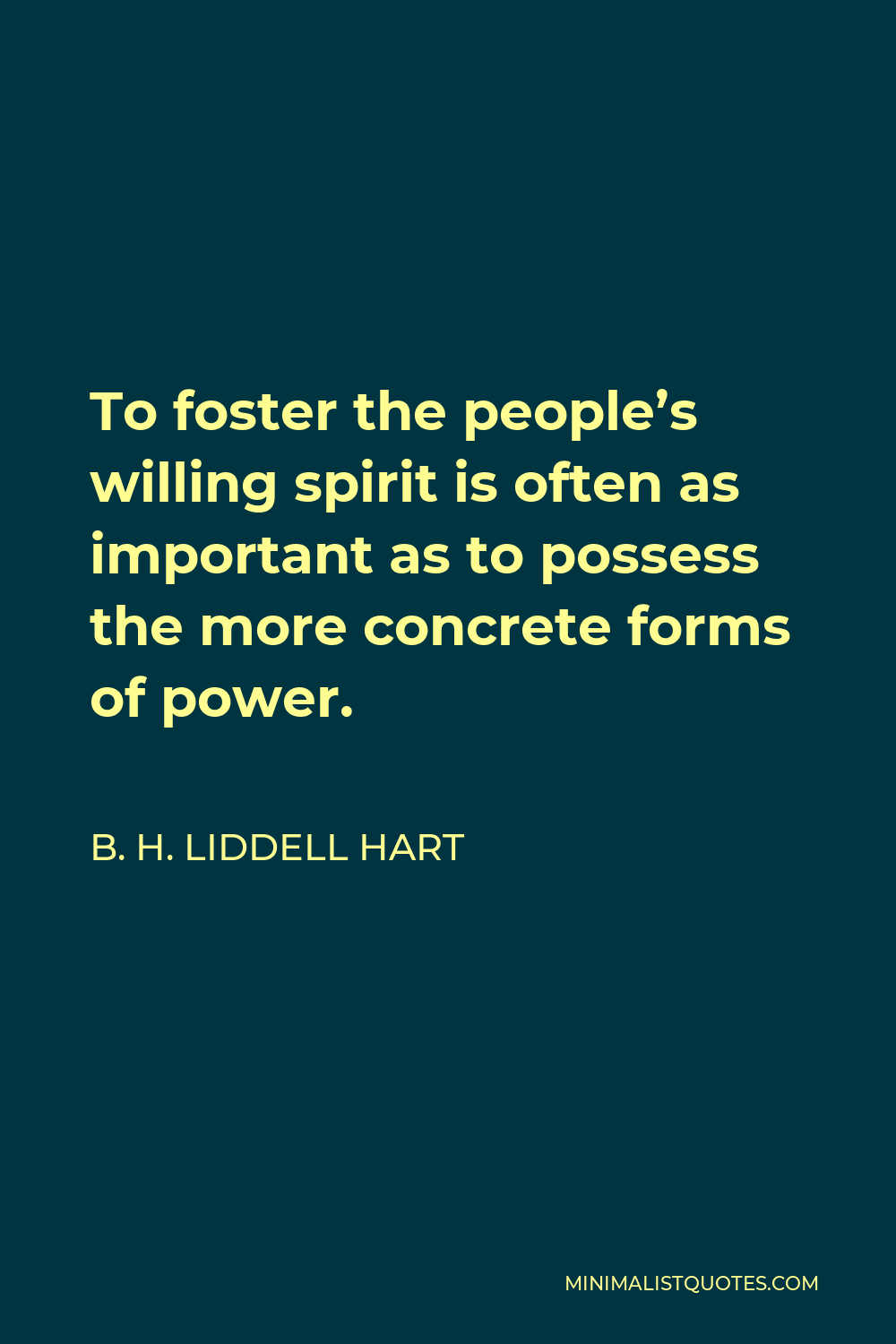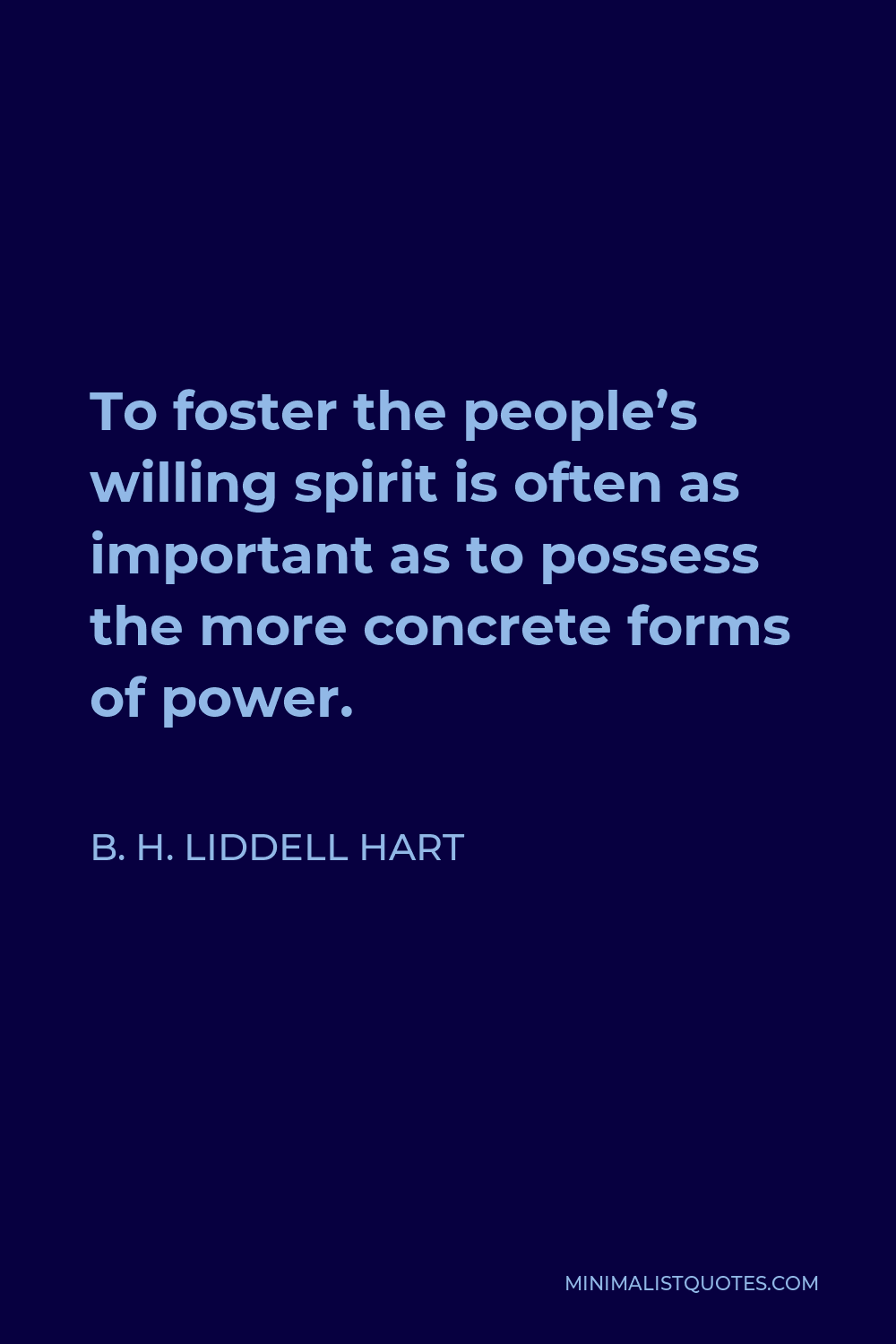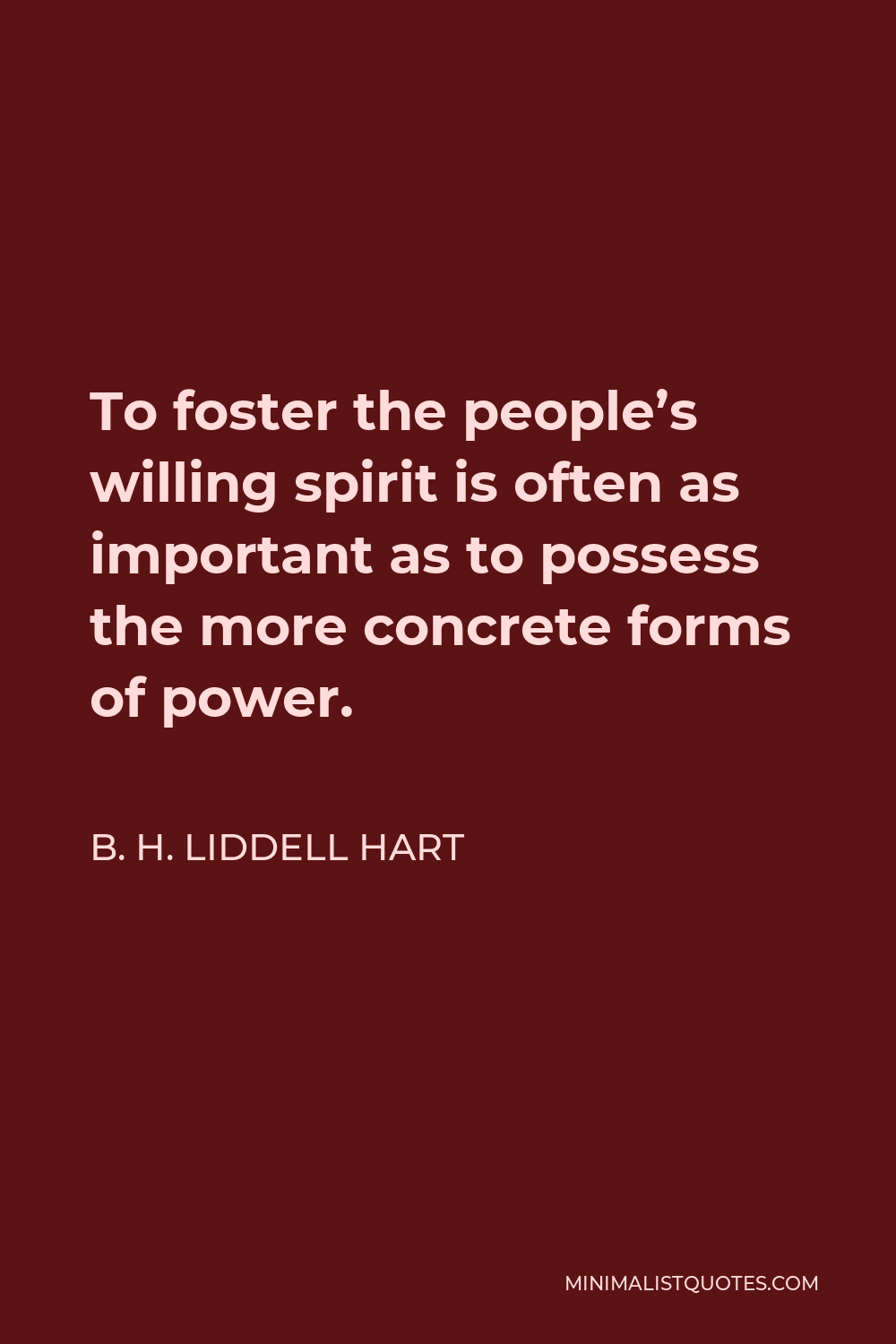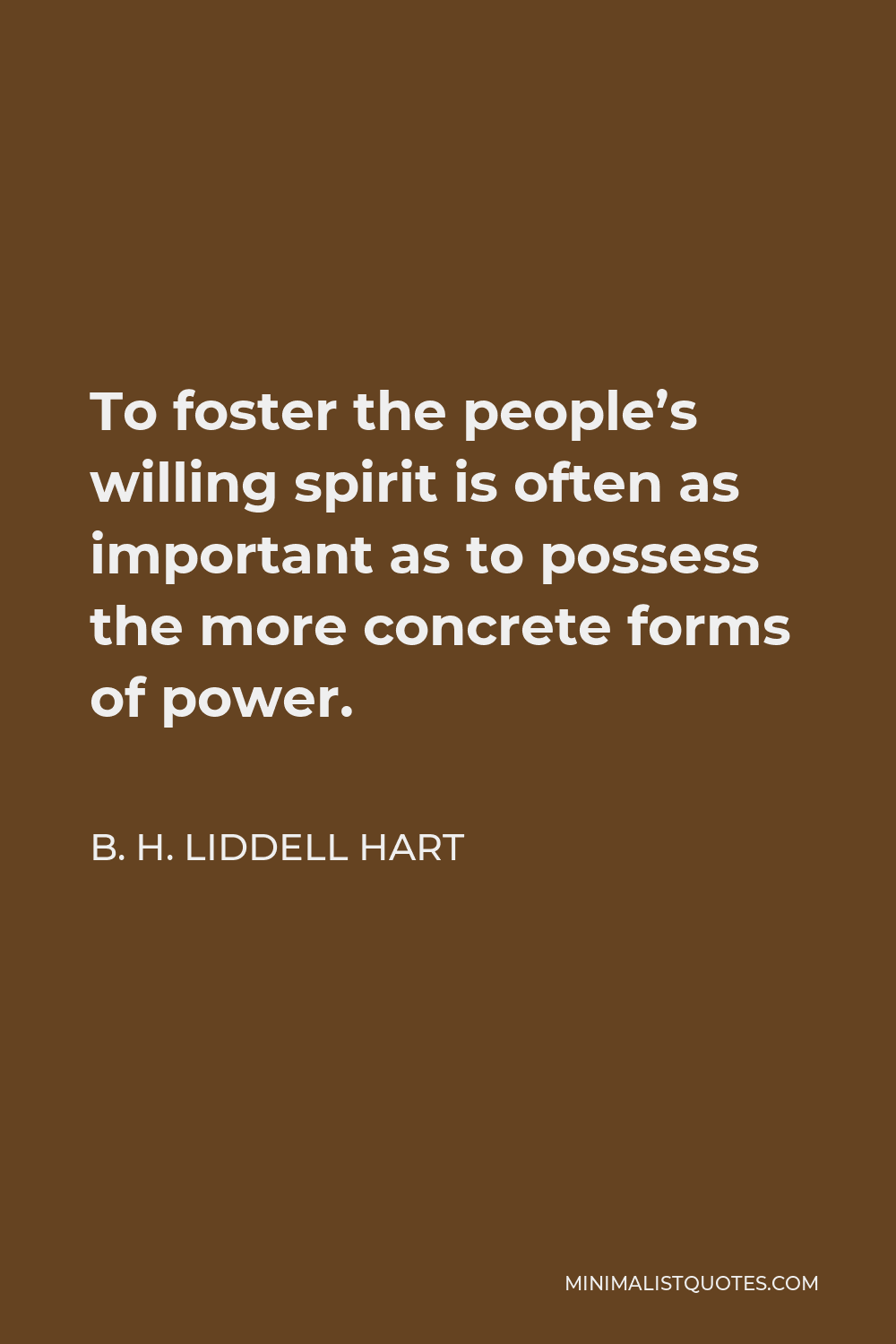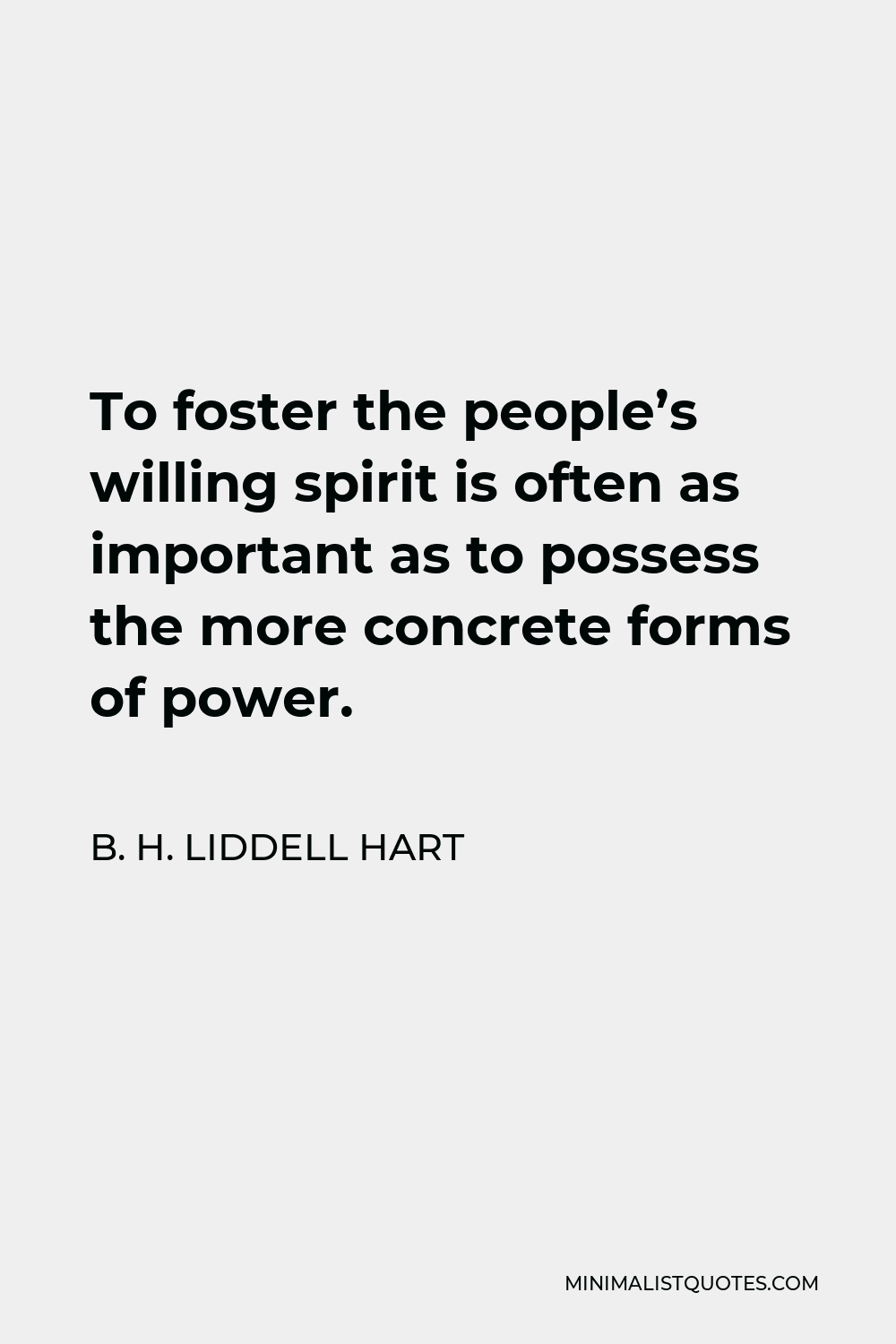For even the best of peace training is more theoretical than practical experience … indirect practical experience may be the more valuable because infinitely wider.
B. H. LIDDELL HARTTo foster the people’s willing spirit is often as important as to possess the more concrete forms of power.
More B. H. Liddell Hart Quotes
-





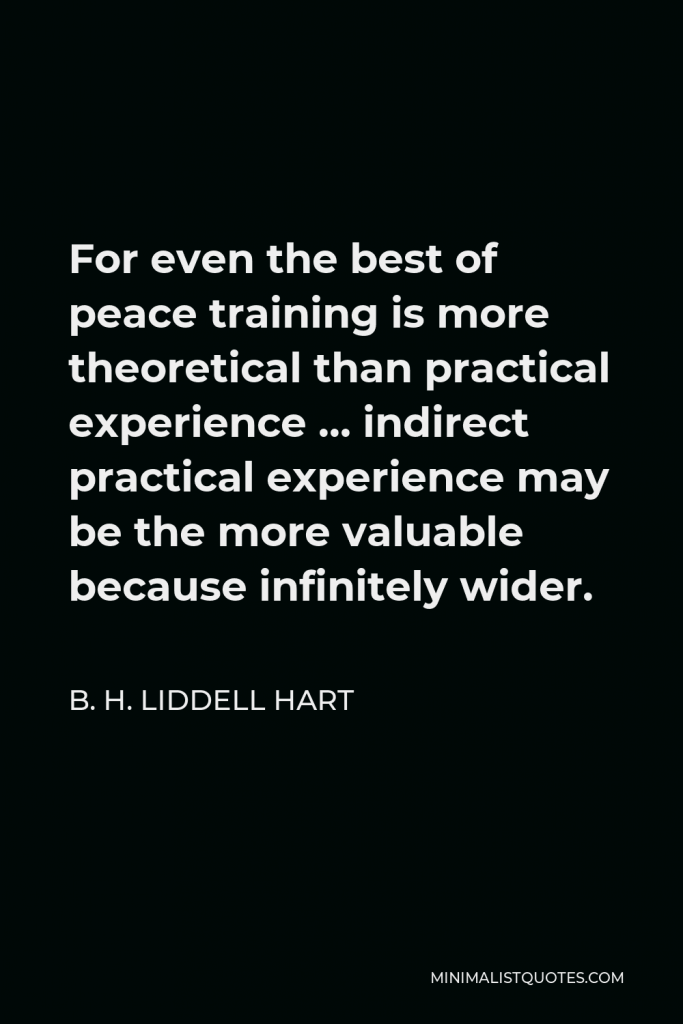

-





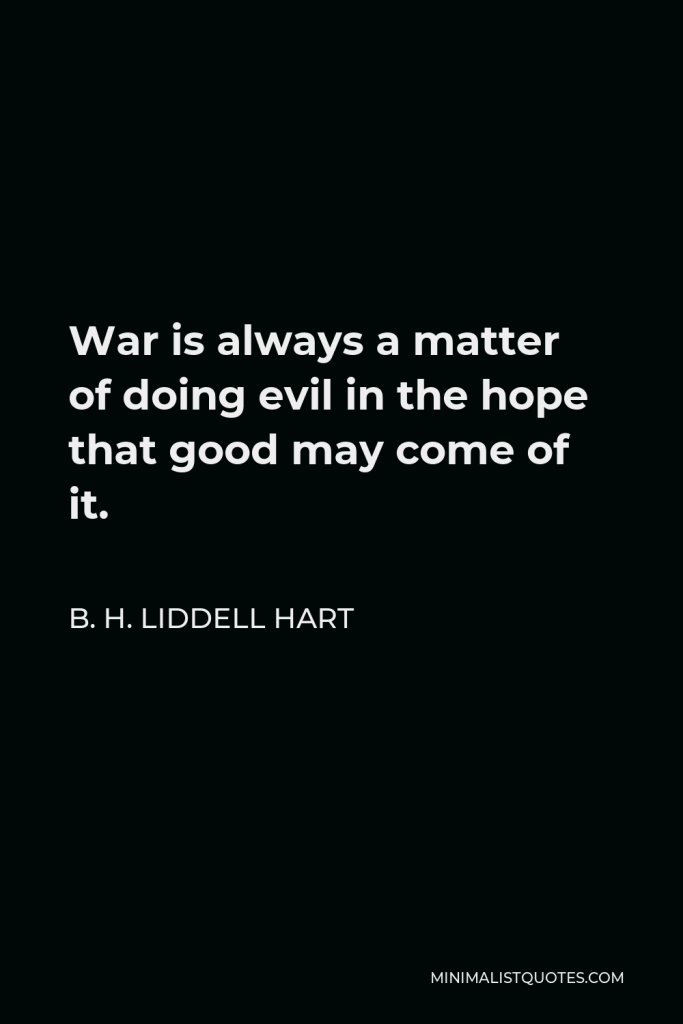

War is always a matter of doing evil in the hope that good may come of it.
B. H. LIDDELL HART -





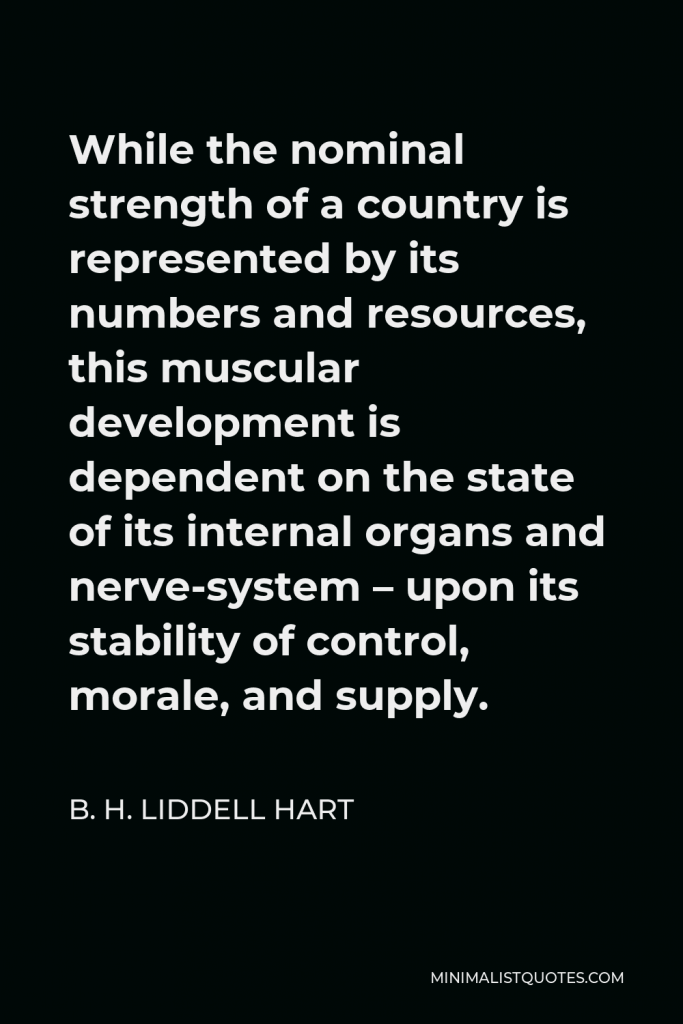

While the nominal strength of a country is represented by its numbers and resources, this muscular development is dependent on the state of its internal organs and nerve-system – upon its stability of control, morale, and supply.
B. H. LIDDELL HART -





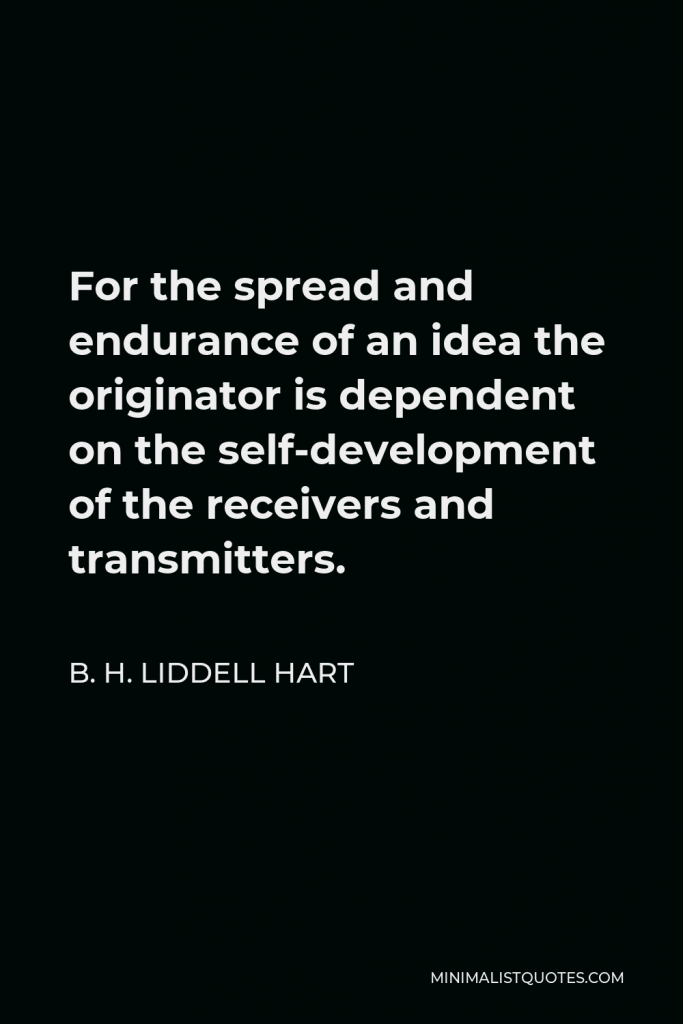

For the spread and endurance of an idea the originator is dependent on the self-development of the receivers and transmitters.
B. H. LIDDELL HART -







Inflict the least possible permanent injury, for the enemy of to-day is the customer of the morrow and the ally of the future
B. H. LIDDELL HART -





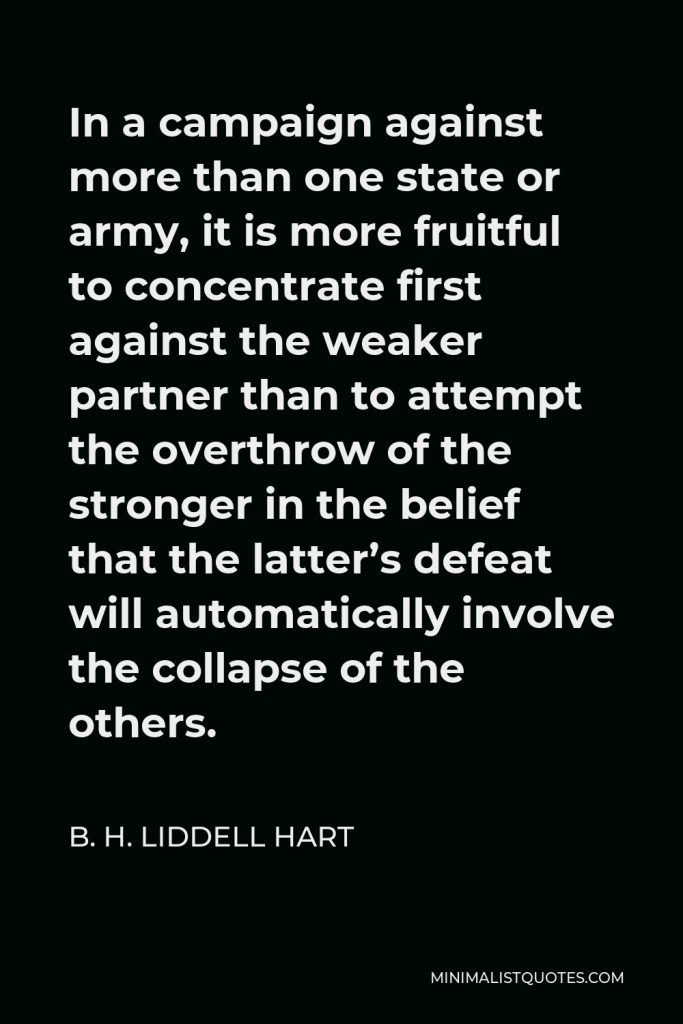

In a campaign against more than one state or army, it is more fruitful to concentrate first against the weaker partner than to attempt the overthrow of the stronger in the belief that the latter’s defeat will automatically involve the collapse of the others.
B. H. LIDDELL HART -





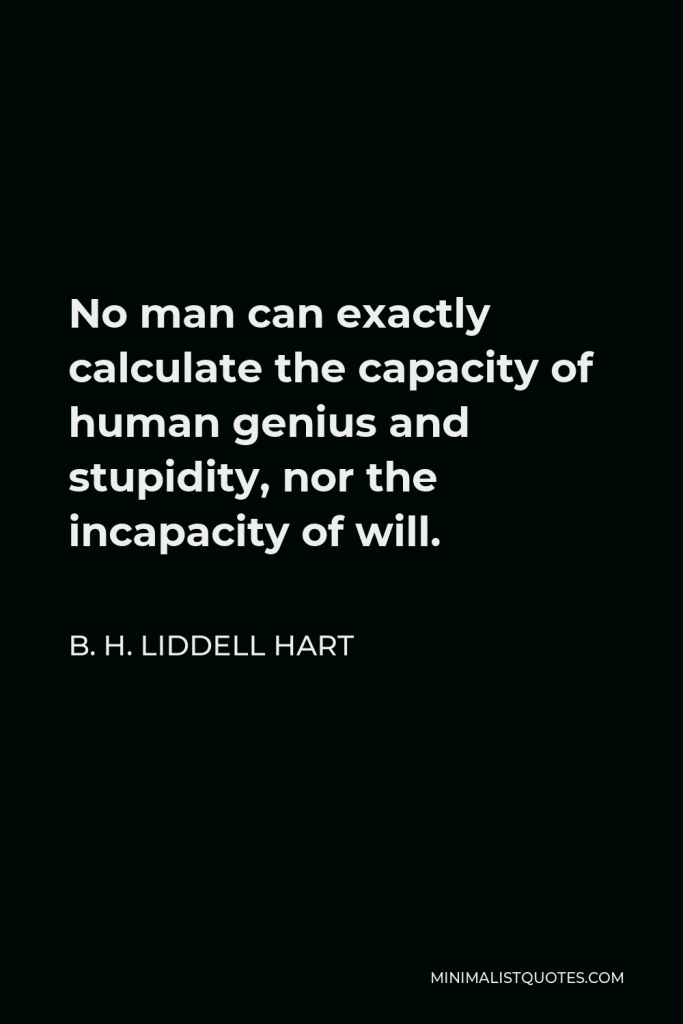

No man can exactly calculate the capacity of human genius and stupidity, nor the incapacity of will.
B. H. LIDDELL HART -





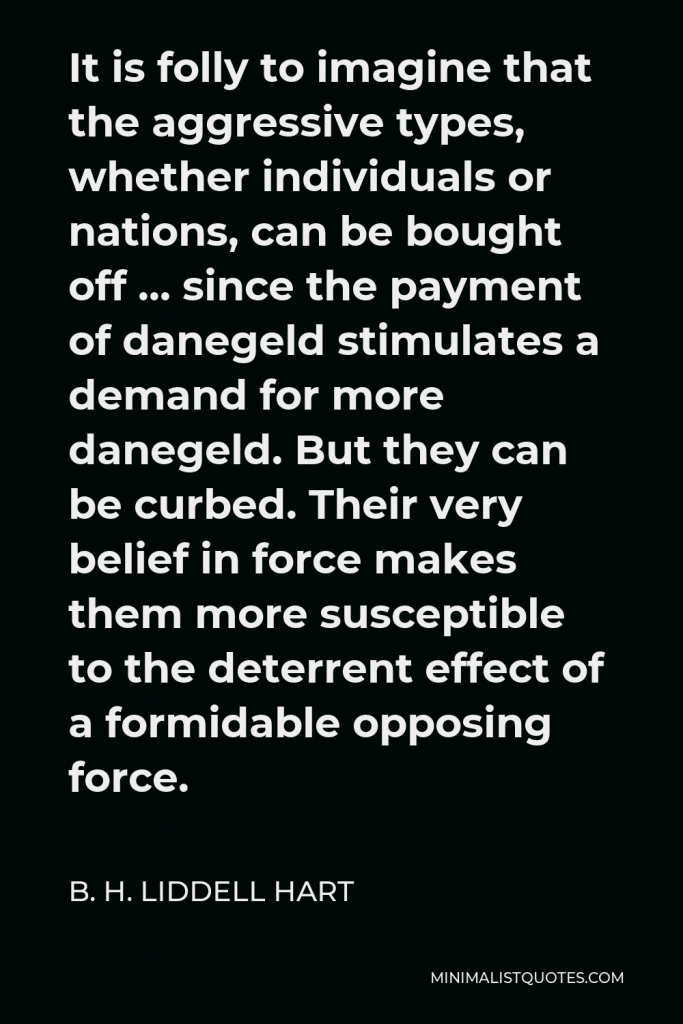

It is folly to imagine that the aggressive types, whether individuals or nations, can be bought off … since the payment of danegeld stimulates a demand for more danegeld. But they can be curbed. Their very belief in force makes them more susceptible to the deterrent effect of a formidable opposing force.
B. H. LIDDELL HART -





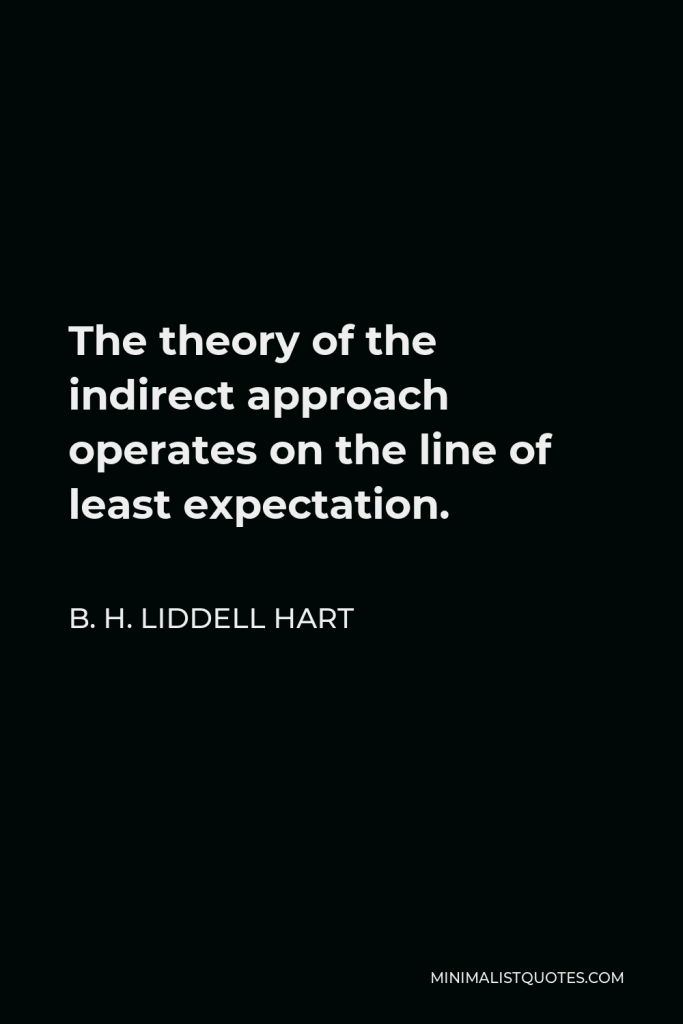

The theory of the indirect approach operates on the line of least expectation.
B. H. LIDDELL HART -







Ensure that both plan and dispositions are flexible, adaptable to circumstances. Your plan should foresee and provide for a next step in case of success or failure.
B. H. LIDDELL HART -





![B. H. Liddell Hart Quote - The higher level of grand strategy [is] that of conducting war with a far-sighted regard to the state of the peace that will follow.](https://minimalistquotes.com/wp-content/uploads/2022/10/the-higher-level-of-grand-strategy-is-that-of-cond-683x1024.jpg)

The higher level of grand strategy [is] that of conducting war with a far-sighted regard to the state of the peace that will follow.
B. H. LIDDELL HART -





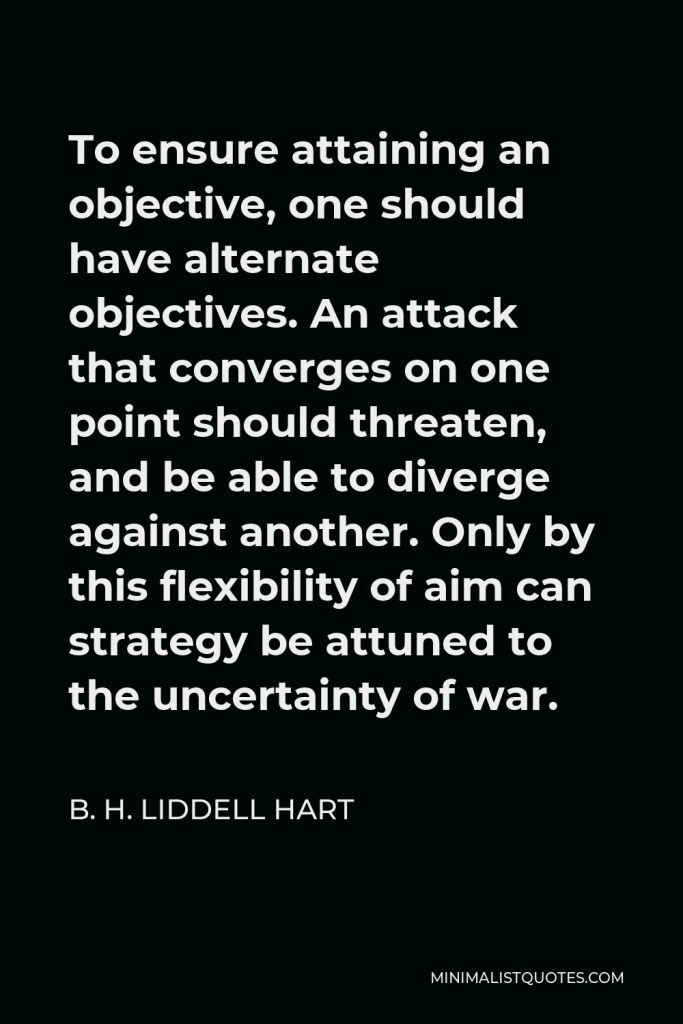

To ensure attaining an objective, one should have alternate objectives. An attack that converges on one point should threaten, and be able to diverge against another. Only by this flexibility of aim can strategy be attuned to the uncertainty of war.
B. H. LIDDELL HART -





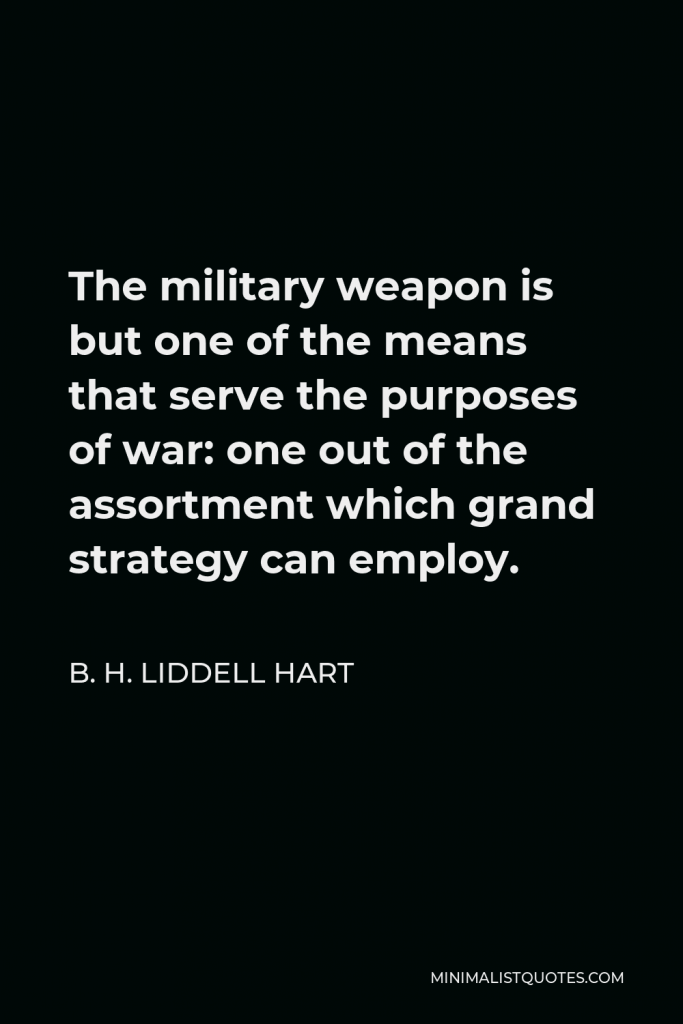

The military weapon is but one of the means that serve the purposes of war: one out of the assortment which grand strategy can employ.
B. H. LIDDELL HART -





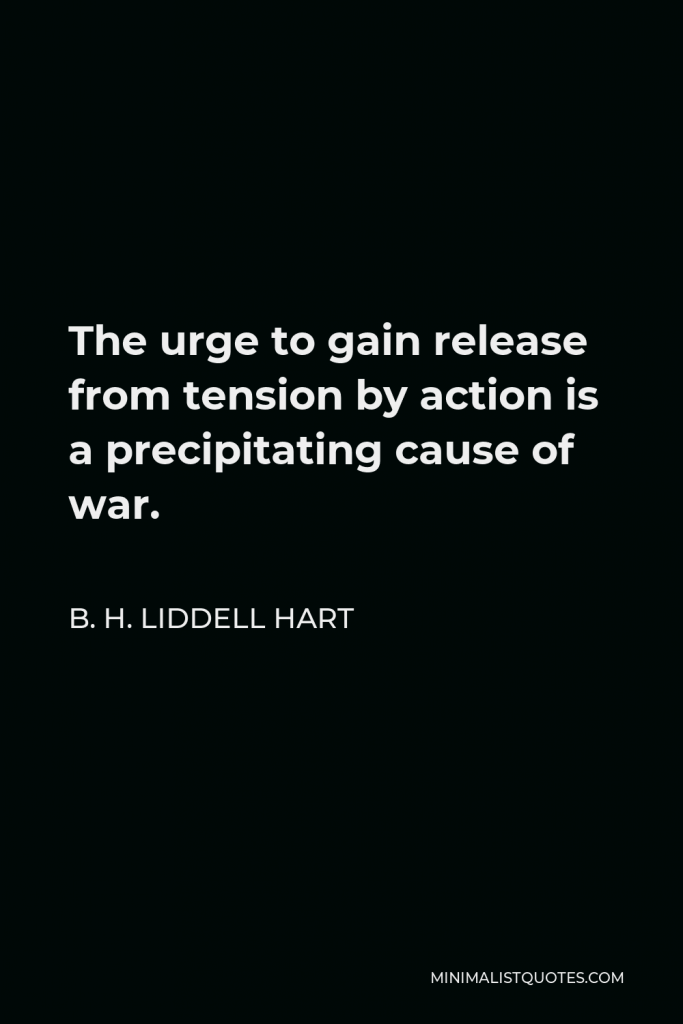

The urge to gain release from tension by action is a precipitating cause of war.
B. H. LIDDELL HART -





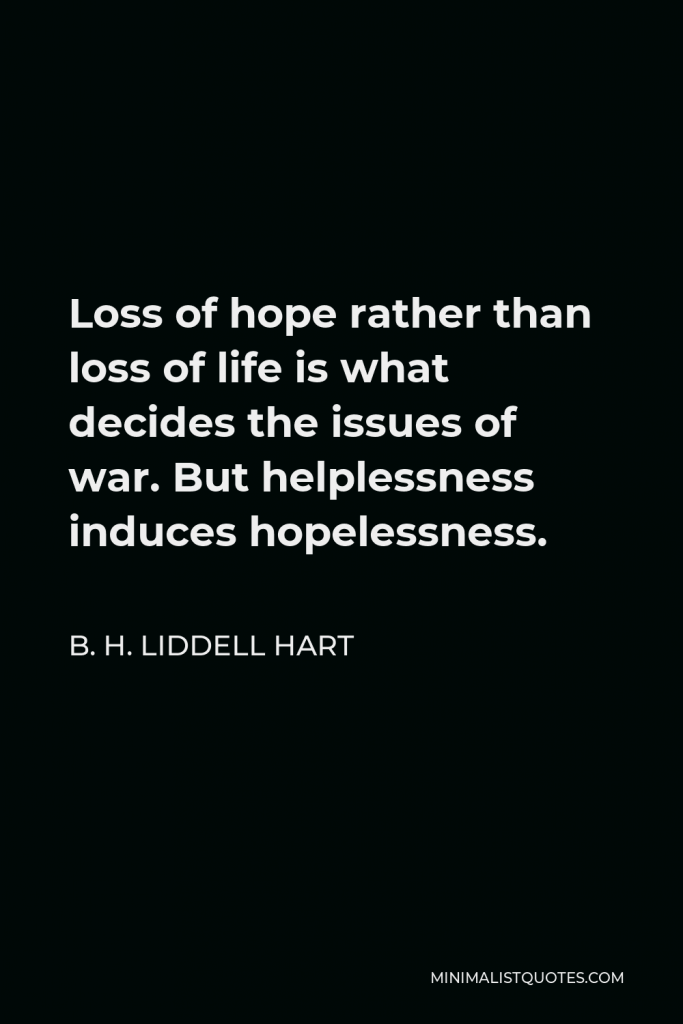

Loss of hope rather than loss of life is what decides the issues of war. But helplessness induces hopelessness.
B. H. LIDDELL HART -







The search for the truth for truth’s sake is the mark of the historian.
B. H. LIDDELL HART

